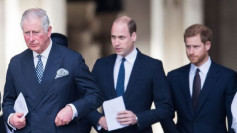Explosions echoed over the Iranian city of Isfahan on Friday in what sources described as an Israeli attack, but Tehran played down the incident and indicated it had no plans for retaliation, a response that appeared gauged towards averting a region-wide war. The limited scale of the attack and Iran's muted response signaled a successful effort by diplomats who have been working to avert all-out war since an Iranian drone and missile attack on Israel last Saturday.
Iranian media and officials described a small number of explosions, which they said resulted from air defenses hitting three drones over Isfahan. Notably, they referred to the incident as an attack by "infiltrators" rather than by Israel, obviating the need for retaliation. A senior Iranian official told Reuters there were no plans to respond against Israel for the incident.
"The foreign source of the incident has not been confirmed. We have not received any external attack, and the discussion leans more towards infiltration than attack," the official said. Jonathan Lord, head of the Middle East security program at the Center for a New American Security, a U.S. think tank, said that "seems to indicate that Iran is seeking to step down off the ledge, minimise the impact of the attack, and perhaps walk back down the escalation ladder from here".
Israel remained silent about the incident, while its ally Washington refused to be drawn. When asked about it repeatedly at a press conference in Italy, U.S. Secretary of State Antony Blinken said he would not comment apart from stating that the United States was committed to Israel's security but not involved in any offensive operations.
The violence between Israel and Iranian proxies across the Middle East has intensified throughout six months of bloodshed in Gaza, raising fears that the longstanding foes' shadow war could spiral into a direct conflict. Israel had said it would retaliate after Saturday's strikes, the first ever direct attack on Israel by Iran, which caused no deaths after Israel and its allies shot down hundreds of missiles and drones.
Allies, including the United States, had pressed all week to ensure any further retaliation would be calibrated not to provoke more escalation. The British and German foreign ministers visited Jerusalem this week, and Western countries tightened sanctions on Iran to mollify Israel.
Countries around the world called for calm. The foreign ministers of the Group of Seven industrialized democracies, in a joint statement at the end of a meeting in Italy attended by Blinken, urged all parties to work to prevent further escalation. They also called for a ceasefire in the Gaza Strip, the release of hostages held there by Hamas, an influx of aid for civilians in Gaza, and for Israel to hold off from attacking Rafah, the last refuge for more than a million Gazans.
In Iran, news reports on Friday's incident made no mention of Israel, and state television carried analysts and pundits who appeared dismissive about the scale. An analyst told state TV that mini drones flown by "infiltrators from inside Iran" had been shot down by air defenses in Isfahan.
Israeli media avoided quoting Israeli officials directly, instead referring to foreign media reports that cited Israeli sources as confirming Israel was behind the attacks. Some Israelis suggested the aim was to demonstrate the capability to attack without causing harm.
The United Nations Security Council was told by Iran on Thursday that Israel "must be compelled to stop any further military adventurism against our interests" as the U.N. secretary-general warned that the Middle East was in a "moment of maximum peril". By morning, Iran had reopened airports and airspace that were shut during the strikes.






